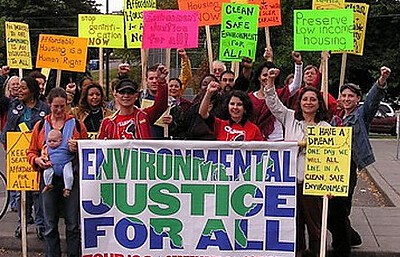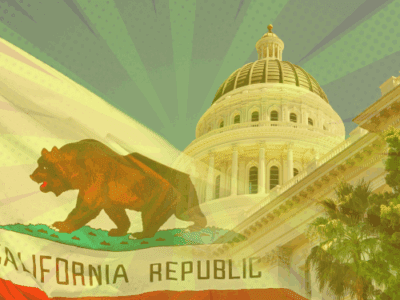Environment and Energy Impacts of the 2022 Election
The consequences will play out in D.C. and in some important states.
The President’s party typically does poorly in the mid-terms, Biden’s popularity is low, and Americans are upset about inflation. But the election didn’t produce the Republican wave many observers predicted in the last few weeks of the campaign. Although the GOP will likely control the House, the Democrats have held the Senate. Here’s where things stand and the policy impacts we can expect.
Congress
The House. It looks likely the Republicans will have a very narrow majority when the dust settles. Republican control guarantees aggressive hearings into all aspects of the Biden Administration, including energy and environment. In particular, committee chairs will be looking for evidence of misspent money under the Inflation Reduction Act. The GOP may also try to use its ability to block must-pass legislation as leverage to obtain concessions, such as cutbacks on climate spending in the Inflation Reduction Act. With few votes to spare, however, the leadership may have trouble controlling the fractious GOP caucus.
The Senate. Senate control is particularly important in terms of judicial and agency appointments. The Democrats have clinched Senate control with a win in Nevada. They may even add to their majority if the Georgia runoff race goes their way in December. Biden has been nominating judges at a hectic pace. Senate control will give him further opportunities to shift the lower courts in a more liberal direction. It also gives him the opportunity to fill high-level vacancies in the executive branch with new permanent appointees. Both aspects of Senate control are important for energy and climate policy.
The States
The Democrats did pretty well in state level races, picking up control of legislative chambers in Michigan, Minnesota, and Pennsylvania, along with a couple of governorships in Maryland and Massachusetts. We can expect more aggressive climate action in Michigan and Minnesota, while the shift in Pennsylvania gives the governor more maneuvering room.
There were also governor’s races that I’ve been watching throughout this election cycle: Arizona, Kansas, Nevada and Wisconsin. Here’s how those states came out.
Arizona. Katie Hobbs (D) is the state senate’s minority leader. Her “Resilient Arizona” plan focuses on dealing with the drought crisis facing the state, but also calls for more investment in “building a 21st-century clean energy economy.” Her opponent, Kari Lake (R), is a former TV anchor and received strong support from Trump. Her campaign website says little about the environment, though one of her recent twitter posts said “drill baby. drill.” She argues desalinization can solve Arizona’s drought crisis. At this writing, the election has not yet been called but Lake may be falling slightly behind. A victory by Hobbs could have a big impact on Arizona energy policy.
Kansas. Democratic Governor Laura Kelly won reelection. She has been a strong supporter of renewable energy, which makes a lot of sense in Kansas given its strong wind resource. In 2019, she announced a statewide energy plan that included eliminating barriers to rooftop solar.
Nevada. The Democratic incumbent was ousted by Joe Lombardo, a county sheriff who was endorsed by Trump. Lombardo’s website focuses on gun rights, immigration, and similar issues. I couldn’t find anything about his views on climate change or renewable energy. Oddly, given his support from Trump, a newspaper interview indicated that he is more moderate than his GOP rivals, citing possible support for rent control policies and “acknowledging Joe Biden as being legitimately elected.” Lombardo’s victory is probably not a good thing in terms of climate action. But beyond that there’s not a lot more that can be said at this point.
Wisconsin. Democratic Governor Tony Evers won reelection. Evers has been very active on climate issues, adding Wisconsin to the U.S. Climate Alliance by embracing the goals of the Paris Agreement, launching an office of sustainability, and setting a zero-carbon goal for 2050. Ruthless gerrymandering guarantees perpetual GOP control of the legislature, so the Governor’s seat is the Democrats’ best hope of having some say in the state.
Overall, the Democrats did far better than the pundits were predicting on the eve of the election. That will help empower Biden to implement his climate policy and accelerate climate action in key states. And given the Nevada victory, Biden can continue lifetime appointments of judges who don’t consider “regulation” a dirty word.
Reader Comments
5 Replies to “Environment and Energy Impacts of the 2022 Election”
Comments are closed.







OK Dan, Joe did his job to restore American Democracy, now it is time to protect future quality of life for all of our newest generations.
It is time to implement your most excellent recommendation: “Where Berkeley falls short, in my view, is that there’s little leadership from the top and little structure at the campus level to organize climate efforts” with extreme urgency to meet COP 27 recommendations to prevent the tipping point for the human race from toppling.
It would be a great idea to join together all necessary academics, thoughout the University of California, and maybe even around the world, to produce and perpetuate an acceptable quality of life for the human race, to make the right things happen in tiime to save us from ourselves.
Thank You Dan, for your dedication to making the right things happen in time.
Dan, time is running out faster than we really know how to calculate, especially considering the surprise disasters that have happened in 2022.
It has to be time for aggressive actions if we are going to save an acceptable quality of life for our newest generations.
PLEASE, ACADEMICS ARE OUR LAST RESORT, I IMPLORE YOU AND ALL ACADEMIC EXPERTS TO UNITE TO IMPLEMENT SOLUTIONS TODAY! NO GROUP OF PEOPLE KNOW MORE ABOUT MAKING THE RIGHT THINGS HAPPEN TO SAVE THE HUMAN RACE THAN ACADEMICS, THAT’S WHAT YOU ARE SUPPOSED TO BE TEACHING US!
Dan,more proof that global warming is completely out of control and we are OUT OF TIME:
The New York Times
New Measure of Climate’s Toll: Disasters Are Now Common Across US
https://www.msn.com/en-us/news/world/new-measure-of-climate-s-toll-disasters-are-now-common-across-us/ar-AA14aKhs?cvid=b0caf0d9034441d9b5ba08f435026f35
Dan- Often overlooked in the environmental space is the importance of energy regulation reforms to open the market for renewable energy generation, transmission, connection, storage, etc.For example, FERC has several proposed reform rules in progress and Manchin’s confirmation hold on a tie breaking Chair position is creating uncertainty.
Hi Arthur – Good point. I completely agree about the importance of energy regulation to make open up the door wider for renewables.